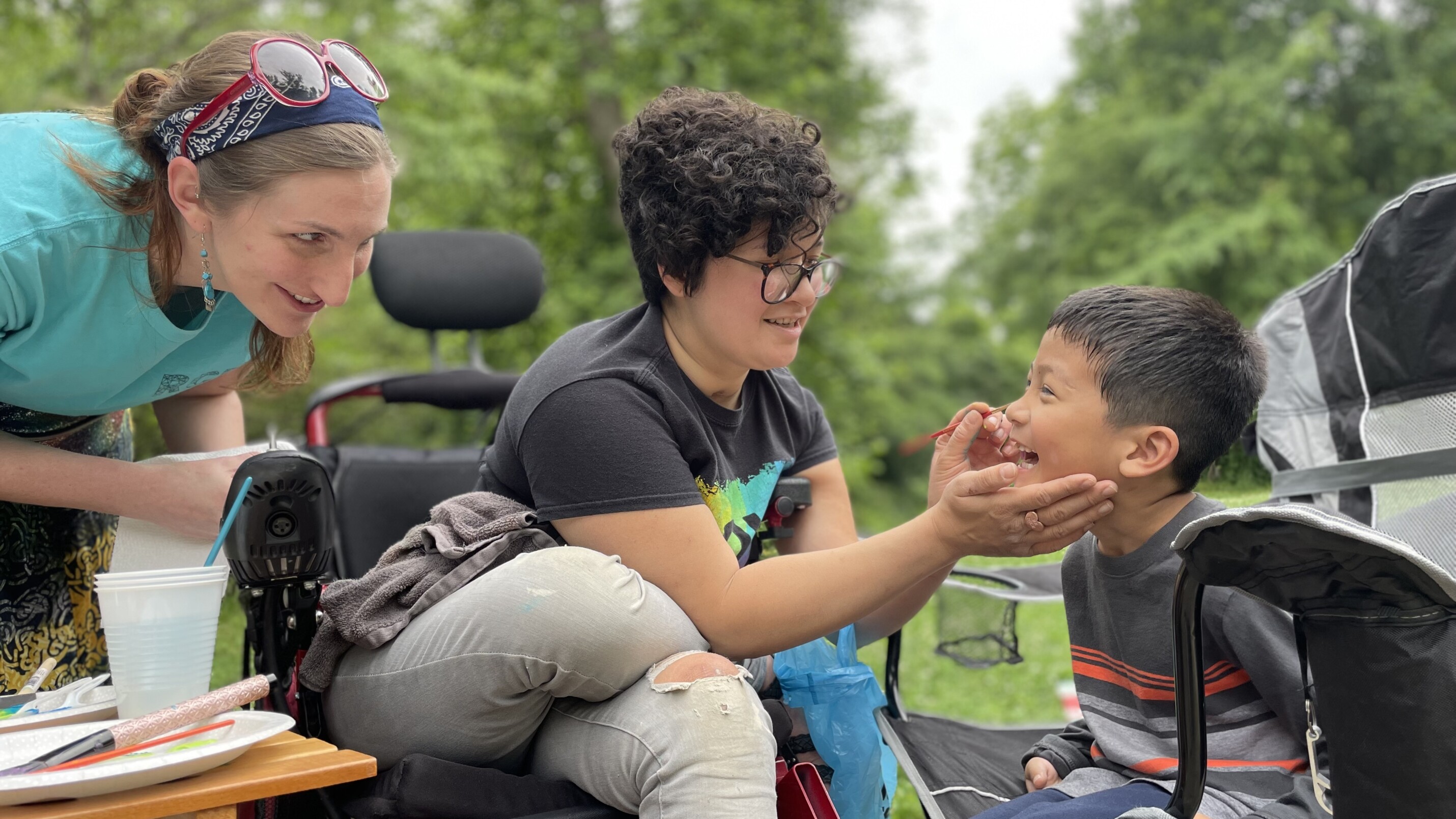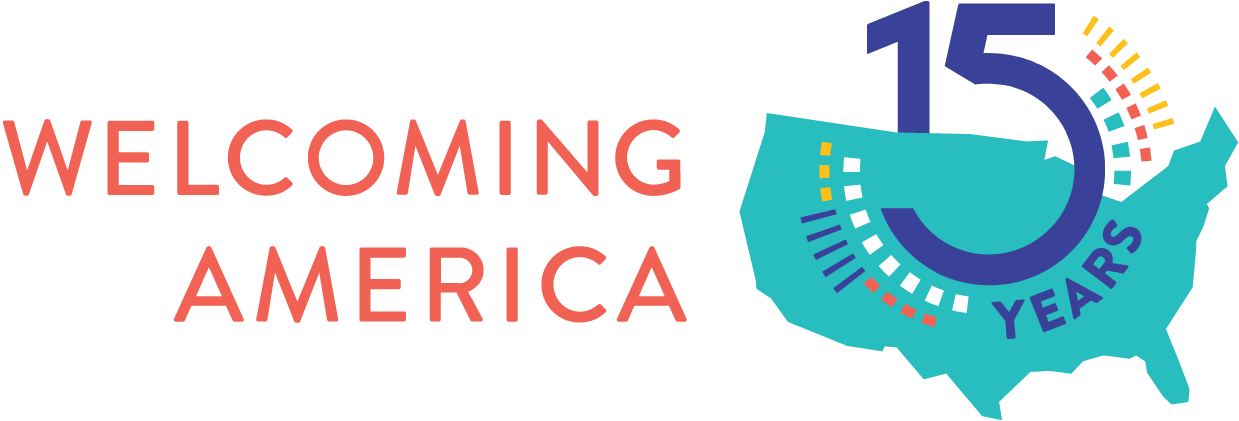
Redefining the refugee resettlement experience in North Carolina
In 2022, for the first time in history, over 100 million people were forcibly displaced. Ongoing global conflicts are bringing more individuals and families to the United States, making it critical to support organizations that are innovating and mobilizing their resources to welcome refugees.
Last year, Welcoming America announced the recipients of $40,000 grants as part of our Fund to Foster Belonging. Every Campus A Refuge in Greensboro, North Carolina, and Refugee Community Partnership based in Carrboro, North Carolina are part of this initiative.
In this blog, both organizations share ways they are working to address gaps in local refugee resettlement services to provide meaningful inclusion and lasting safety and opportunity for refugees.
Every Campus A Refuge (ECAR) at Guilford College is part of a long history of human rights movements in Greensboro, such as the counter sit-ins during the Civil Rights Movement. According to Diya Abdo, Ph.D., a professor of English at Guilford College and the daughter of Palestinian refugees, the city is full of energy for the refugee cause and is a prime community for advocating for the redistribution of resources. ECAR’s mission is to mobilize colleges and universities to host refugees on campuses and support them in their resettlement journey.
In other areas of North Carolina, such as where Refugee Community Partnership (RCP) operates, communities are not as prepared to accept refugees, but the community is open to seeing change happen, said RCP co-director Meagan Clawar. RCP’s goal is to move away from refugee resettlement as a form of charity to a relationship of mutual aid and collective care through a variety of community-designed initiatives.
We spoke with Diya Abdo and RCP co-directors Daniella Runyambo and Meagan Clawar about their organizations’ purposes and innovative approaches to welcoming refugees.
Gaps in the system
According to Abdo, most refugees remain displaced in refugee camps and there are few solutions to address the issue. Executive orders and policies during the Trump administration erased U.S. refugee resettlement infrastructure and diminished the capability of agencies to support refugees. Unfortunately, the Biden Administration has done very little to rebuild this infrastructure. This dismantling, combined with influxes of refugees from Afghanistan, Ukraine, and elsewhere has “laid bare the opportunities and the gaps in our refugee resettlement systems,” said Abdo.
Often stretched beyond their capacity, resettlement agencies are able to provide limited support. According to Runyambo, an immigrant herself, refugees often do not have support in navigating healthcare, school, and government systems. Many refugees are not aware of the systemic inequities present throughout American history, and the discrimination faced by many in day-to-day life.
“Unfortunately, that’s kind of the blueprint of our systems. [The] way they were started was focused to serve a specific community, a specific people that look a specific way from a specific gender sometimes, and when [immigrants] come into this country, we are different people. We don’t fit into that blueprint. And as we know, it’s taking forever for our country to catch up with the new reality,” Runyambo said.
Every Campus A Refuge
Diya Abdo founded Every Campus A Refuge in 2015 in response to the arrival of Syrian refugees. Inspired by Pope Francis’s call for every parish in Europe to host a refugee family during this time, Abdo saw the potential for colleges and universities to meet the call for radical hospitality and play an integral role in the resettlement system.
“I’m really invested in higher education as a community of ecosystems, so I keep saying there are 4,000 colleges and universities in this country. They each represent a potential ecosystem for powerful integration, support, and resettlement,” said Abdo.
Universities are equipped with ample resources, housing, cafeterias, clinics, gym facilities, career services, and more. ECAR helps universities reframe the myth of scarcity through innovative thinking, training, open access to materials, and funding so that campuses can envision themselves as capable of welcoming refugees into their communities.
ECAR is based on a model of refugee co-sponsorship: partnering a university with a refugee resettlement agency to find the best opportunity for placement and providing newcomers with immediate transitional housing support. The model, described by Abdo as providing a “softer landing and stronger beginning,” gives refugees a choice and allows them to learn about the community before making a decision on where they’d like to go.
“[ECAR] is as much about transforming higher ed as it is about transforming refugee resettlement,” says Abdo. Through direct service — whether it be tutoring a refugee, offering case management support, or taking them grocery shopping — ECAR allows culturally responsive volunteers such as students, faculty, and staff to learn about the refugee experience, welcoming infrastructure, and diversity in their communities while maintaining the safety, privacy, agency, and dignity of refugees.
By inverting the service learning model and bringing the community to the campus space, ECAR allows individuals to reimagine who is at the center of the learning experience by encouraging both sides to teach one another and disrupting the exclusivity of college campuses.
Refugee Community Partnership
Refugee Community Partnership takes a holistic, community-driven approach to refugee inclusion in communities by working at the intersections of social mobility, health equity, and language justice. By recognizing the unique needs of refugees from different countries, RCP takes refugee input seriously in their work to bridge the divide between new refugees and long-time North Carolina residents.
Community coordinators from within the refugee community who speak the newcomers’ language and have shared experiences serve as the bridge between RCP and the community. The coordinators find the right methods to communicate with the community as a whole and serve as a voice and support system for individuals and their needs. Each community, whether Karen or Afghan, is supported based on their cultural backgrounds and priorities.
“We’ve really had to be intentional about how we remain true to what our values are, and our philosophies. One thing that we’ve more intentionally been doing is having member councils where we convene RCP community members. They’re compensated for their time, and we really just have a conversation about what’s going well, what’s not going well,” said Clawar.
This community-driven approach has led to three programs that address the gaps in traditional resettlement models and organizations.
RCP’s navigator program addresses language barriers and management in healthcare. For example, transportation to facilities, medical terminology, and discrimination were all concerns brought to RCP by refugee communities and through the Navigator Program. To address this, individuals are paired with a trained community member that advocates for the patient, making sure they receive language interpretation as needed.
A women’s group was created by RCP as a response to the needs of a group of women from Burma missing the communal aspect of their culture. The more isolated way of life in the U.S., caused by lack of transportation and childcare, was a challenge to be solved in order to improve the refugee women’s lives. The group addresses this by connecting the women with resources, such as University of North Carolina volunteers willing to provide childcare, as well as a location for women to meet in a safe space and connect with community activities such as sewing and self-defense training.
Another program pairs people from within the refugee community with local families to provide educational support to children and parents alike. The neighborhood-based support evolved during the pandemic, and now consists of community circles with interpreters where RCP’s refugee members are able to access language support and mentoring to navigate the school system.
With leadership reflecting the communities being served, RCP prioritizes relationships with individuals with lived experience and the needs within each refugee community, building trust to ensure equity in all facets of refugee life.
Local approaches to refugee inclusion
Whether due to war, climate change, human rights violations, economic disasters, or other conflicts, individuals worldwide are having to seek safety elsewhere, sometimes in far away places. In response, communities everywhere need to be prepared to welcome refugees.
By bringing people from different backgrounds together, Fund to Foster Belonging participants like ECAR and RCP are building more cohesive communities where everyone, including refugees, belongs.
Explore opportunities for your community build off of these innovative approaches to refugee inclusion:
- Access resources to learn ways to foster greater community support and understanding for refugees.
- Develop welcoming infrastructure that supports refugees in the long-term.
- Learn more about how communities are bridging divides between immigrants, refugees,, and long-time residents through the Fund to Foster Belonging.

